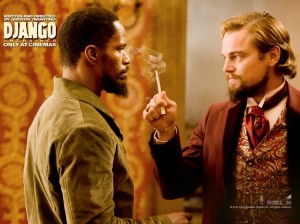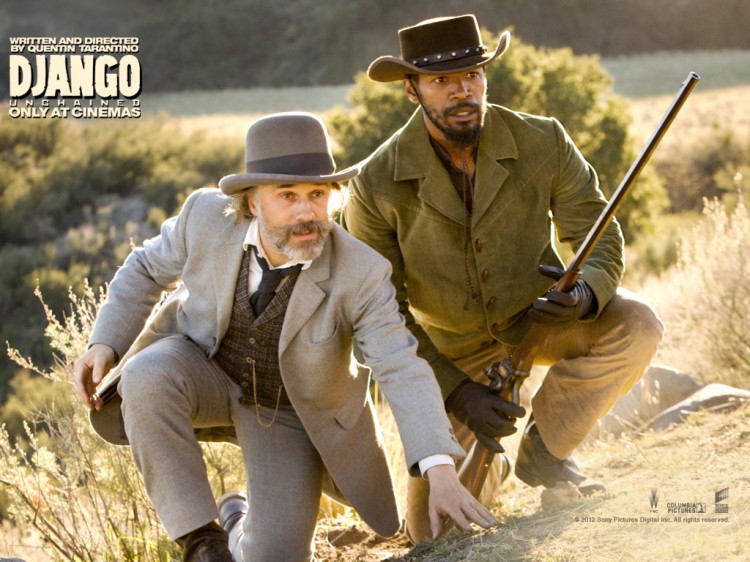Over the past 20 years, Quentin Tarantino has cemented himself as one of cinematography’s most recognized directors by turning the likeness of his movies into an adjective.
Tarantino has solidified his own adjective for movies in his early game-changing films “Resevoir Dogs” and “Pulp Fiction”. “Tarantino-esque” has become a term used for movies with preposterous violence and foul language, which brings added humor to the movie.
“Django Unchained” is by no means off Tarantino’s beaten path. Similar to “Inglourious Basterds,” this movie is much less about the history of slavery, and much more about the vengeance story of Django.
Set in the South two years before the Civil War, “Django Unchained” tells the story about a freed slave and his mixed desires for revenge and love. Django, played by Jamie Foxx, was freed by bounty hunter Dr. King Schultz, played by Christoph Waltz, because Schultz needs help tracking and hunting bountied slave owners.
Django and Schultz set off on a quest to find Django’s wife Broomhilda, played by Kerry Washington, after Django informs Schultz of what auction she was sold from. The two bounty hunters ultimately go to a plantation owned by Calvin Candie, played by Leonardo DiCaprio, by saying Django is an expert on mandingo fighting, or slave fighting.

Leonardo DiCaprio described getting into his role of slave owner, Calvin Candie, as a quite difficult job. DiCaprio had a tough challenge in portraying a slave owner, yet he does a fantastic job of making Calvin Candie seem like a real life villain. In an interview on the Today Show, DiCaprio talked about how hard it is to play someone who doesn’t deem others as human.
Tarantino is known for foul language and slightly comical violence in his movies, but this specific film has caused controversy because of the frequent and pronounced use of the N-word, despite how often it was used in the historical period the movie is set in. However, the explicit language and vulgarity in “Django,” as well as many of Tarantino’s other films, emphasize his style as a director.
As usual in a Tarantino film, Samuel L. Jackson’s role as Stephen, a servant of Calvin Candie, provides humor in his overly explicit remarks. Christoph Wallace also provides some laughs with several smooth, cunning remarks, and his character’s quirky, awkward way about him. Christoph Wallace did an incredible job of being the “nice guy” by helping Django escape slavery, while also killing people mercilessly as a bounty-hunter.
All controversy aside, “Django Unchained,” ranks right up there with other Tarantino classics such as “Reservoir Dogs,” “Pulp Fiction,” “Kill Bill”, and “Inglourious Basterds.”






































![Teacher Lore: Mr. Hillman [Podcast]](https://bsmknighterrant.org/wp-content/uploads/2025/03/teacherlorelogo-1200x685.png)





Dan O. • Feb 13, 2013 at 12:56 am
This is surely not historically accurate, but when it shows moronic slave-owners getting their just desserts, it’s deliciously satisfying. Good review.